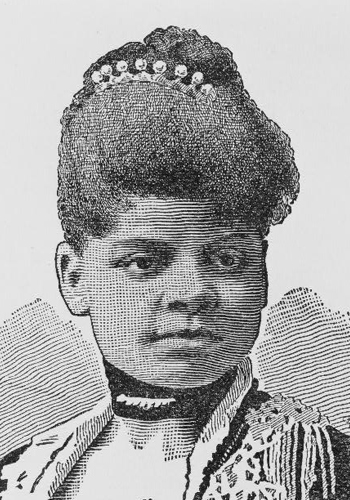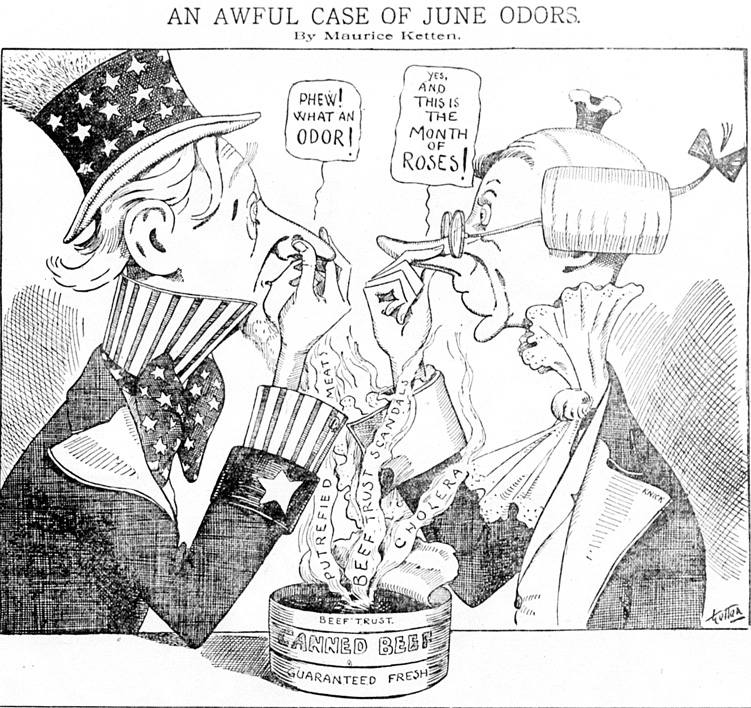Upton Sinclair chose to expose the egregious conditions of the Chicago meatpacking industry in the form of a novel, The Jungle, in 1905. Why do you think he made that decision? Take a look at the excerpt below to give you an idea about the conditions workers faced.
In chapter 5 of The Jungle, Sinclair describes the conditions one worker faced as a “pickler.”
It seemed that he [Antanas Rudkus] was working in the room where the men prepared the beef for canning, and the beef had lain in vats full of chemicals, and men with great forks speared it out and dumped it into trucks, to be taken to the cooking room. When they had speared out all they could reach, they emptied the vat on the floor, and then with shovels scraped up the balance and dumped it into the truck. This floor was filthy, yet they set Antanas with his mop slopping the "pickle" into a hole that connected with a sink, where it was caught and used over again forever; and if that were not enough, there was a trap in the pipe, where all the scraps of meat and odds and ends of refuse were caught, and every few days it was the old man's task to clean these out, and shovel their contents into one of the trucks with the rest of the meat!
Directions
Use the magnifier to read the article by Upton Sinclair that came out after the release of The Jungle and answer the questions in the boxes below.
“Upton Sinclair Tells About the Sufferings of the Women in Packingtown.” The Evening World. New York, June 9, 1906. Library of Congress
Questions
Puzzler
Directions: Take a look at the different sections of the political cartoon one by one. Answer the accompanying question as you try to figure out what the whole image is. At the end, you will see the completed cartoon.
Source: Library of Congress

Cropped Image 1
How does the artist use caricature (a picture of a person in which certain characteristics are exaggerated for dramatic effect)?

Cropped Image 2
What could “June Odors” be referring to?

Cropped Image 3
Using specific evidence, what do you think the cartoon is about at this point?








